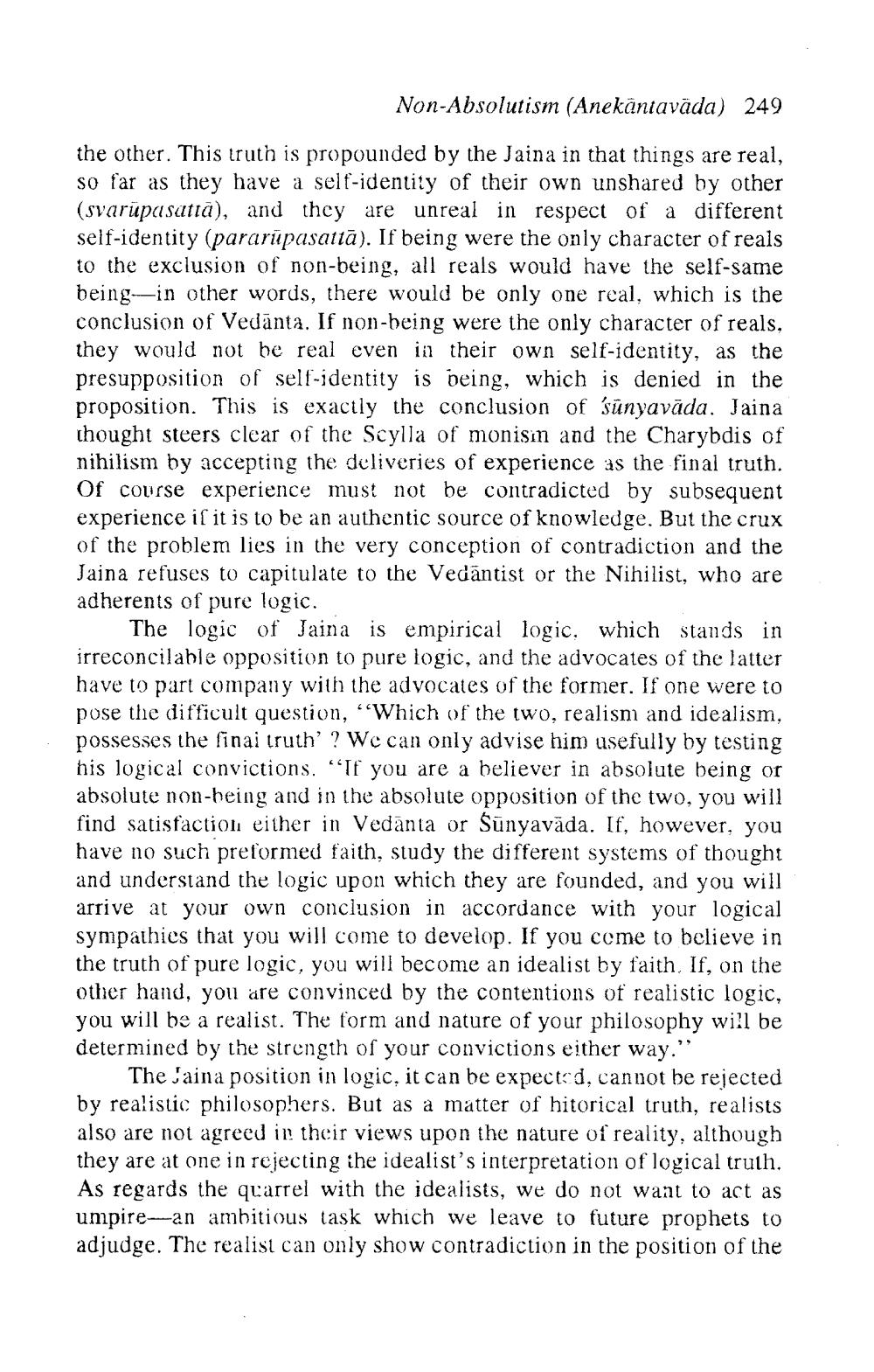________________
Non-Absolutism (Anekantavada) 249
the other. This truth is propounded by the Jaina in that things are real, so far as they have a self-identity of their own unshared by other (svarūpasutiã), and they are unreal in respect of a different self-identity (pararūpasattā). If being were the only character of reals to the exclusion of non-being, all reals would have the self-same being-in other words, there would be only one real, which is the conclusion of Vedānta. If non-being were the only character of reals, they would not be real even in their own self-identity, as the presupposition of self-identity is being, which is denied in the proposition. This is exactly the conclusion of sünyavāda. Jaina thought steers clear of the Scylla of monisin and the Charybdis of nihilism by accepting the deliveries of experience as the final truth. Of course experience must not be contradicted by subsequent experience if it is to be an authentic source of knowledge. But the crux of the problem lies in the very conception of contradiction and the Jaina refuses to capitulate to the Vedāntist or the Nihilist, who are adherents of pure logic.
The logic of Jaina is empirical logic, which stands in irreconcilable opposition to pure logic, and the advocates of the latter have to part company with the advocates of the former. If one were to pose the difficult question, "Which of the two, realism and idealism, possesses the finai (ruth? We can only advise him usefully by testing his logical convictions. "If you are a believer in absolute being or absolute non-being and in the absolute opposition of the two, you will find satisfaction either in Vedānta or Sünyavāda. If, however, you have no such preformed faith, study the different systems of thought and understand the logic upon which they are founded, and you will arrive at your own conclusion in accordance with your logical sympathies that you will come to develop. If you come to believe in the truth of pure logic, you will become an idealist by faith, If, on the other hand, you are convinced by the contentions of realistic logic, you will be a realist. The form and nature of your philosophy will be determined by the strength of your convictions either way."
The 'aina position in logic, it can be expected, cannot be rejected by realistic philosophers. But as a matter of hitorical truth, realists also are not agreed in their views upon the nature of reality, although they are at one in rejecting the idealist's interpretation of logical truth. As regards the quarrel with the idealists, we do not want to act as umpire-an ambitious task which we leave to future prophets to adjudge. The realist can only show contradiction in the position of the




